5 Craziest and Eyebrow-Raising Revelations from Maggie Haberman’s Interviews With Trump
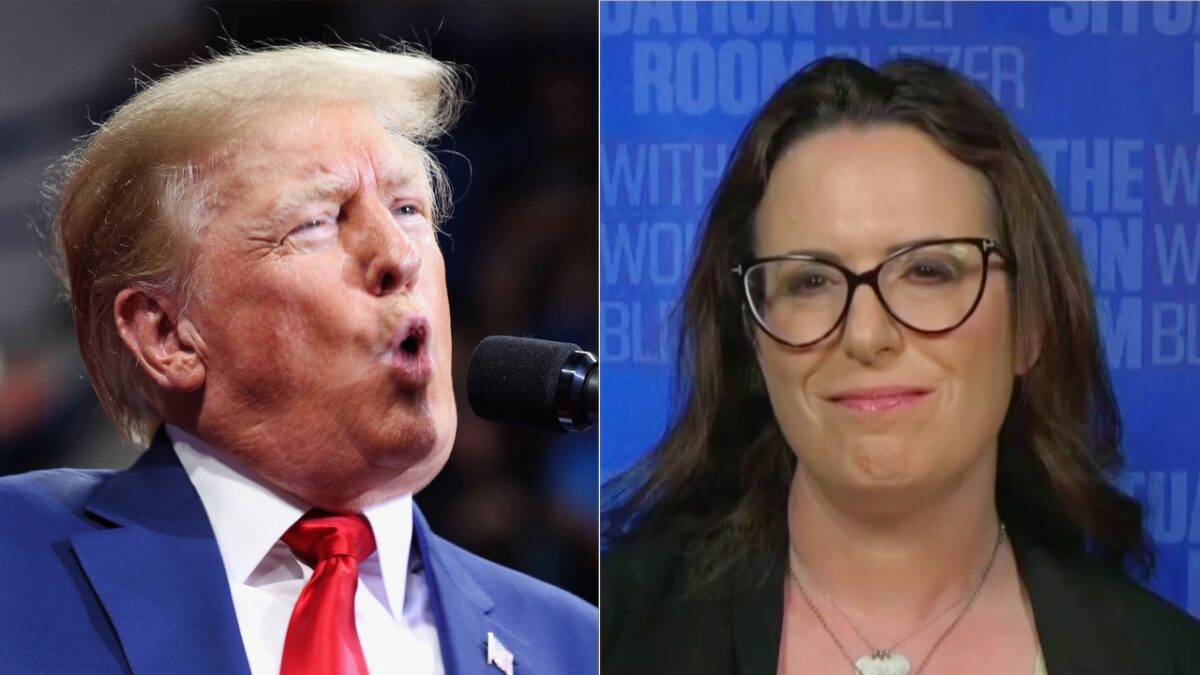
L: Spencer Platt/Getty Images
On three separate occasions, the New York Times’s Maggie Haberman interviewed former President Donald Trump for her new book Confidence Man. Excerpts from those interviews were published yesterday by The Atlantic and immediately provided fascinating fodder for any fans of her consistently stunning reporting and unique relationship with the 45th president.
Despite Trump’s consistently combative posture with the press, it’s clear that he appreciates what could be called a symbiotic relationship with Haberman, who Trump appears to both respect and like and also criticize when she reports items that are not to his liking.
Haberman is considered at the absolute top of her game when it comes to access and reporting on Trump, which is perhaps best evidenced by the often unfair criticism she receives from both the right AND the left for her coverage.
Her most recent piece, this in The Atlantic, will remind viewers why she has won so many awards. She gets Trump to let his guard down, which she frames in the sort of spot-on context that is sadly and increasingly rare in our tribalized political media ecosphere.
Read the entire article — and while you are at it, subscribe to The Atlantic. Following are some (but not all) of the most bonkers, illuminating, and eyebrow-raising moments to come from the piece.
1. Despite loads of testimony that indicates otherwise, Trump insists that he was not glued to the television on January 6th.
I pressed him on what, at that point, was one of the persistent mysteries of January 6, which would become central to the congressional select committee’s investigation: what he had been doing in the hours when the Capitol was under assault from his supporters. He insisted that he was not watching television, despite volumes of witness testimony and other evidence to the contrary. “I didn’t usually have the television on. I’d have it on if there was something. I then later turned it on and I saw what was happening,” he said. He lied throughout that bit of our interview: “I had heard that afterward and actually on the late side. I was having meetings. I was also with Mark Meadows and others. I was not watching television.”
Of course, it’s now a widely held belief that Trump DID spend most of if not that entire fateful day in a private dining room off the Oval Office, given the vast amount of testimony — under oath — that has since emerged.
2. Trump was “very disappointed” that Sidney Powell claimed that no one should have taken her very seriously on her repeated insistence that the election was stolen.
He was at his most animated when I asked about why he had trusted Sidney Powell, given the concerns his other advisers had had about her. Since then, Powell had faced libel suits from voting-machine manufacturers she had accused of corruption; her defense had been, essentially, that no one should have taken what she had to say seriously. “I was very disappointed in her statement,” Trump said. “That is so demeaning for her to say about herself.” Then he essentially read stage directions on how to use public claims in lawsuits. “All she had to say,” he said, “was ‘Upon information and belief, I think such and such.’ Now all she says there, was take a thousand stories that were written over the last 10 years long before all of this, that are bad stories,” he said, “and that is information and belief, she read them. And that’s the end of that case. That’s true for everybody: ‘It’s upon information and belief and let’s go to court to find out if it’s true.’”
What seems most fascinating here is Trump’s claim that “information and belief” is a legal recourse “for everybody,” suggesting that the ephemeral nature of meaning itself is best left to the courts, who are ill-equipped to adjudicate on shades of grey.
3. When pressed about valuable documents that Trump still had in his possession, the former president admitted, “We have incredible things.” This, BEFORE the court-ordered search and seizure of his Mar-a-Lago home on August 8th.
He demurred when I asked if he had taken any documents of note upon departing the White House—“nothing of great urgency, no,” he said, before mentioning the letters that Kim Jong-un had sent him, which he had showed off to so many Oval Office visitors that advisers were concerned he was being careless with sensitive material. “You were able to take those with you?” I asked. He kept talking, seeming to have registered my surprise, and said, “No, I think that’s in the archives, but … Most of it is in the archives, but the Kim Jong-un letters … We have incredible things.”
It turns out…he DID have incredible things, at least according to Department of Justice filings that show dozens of top secret and classified folders procured in that search and seizure.
4. Trump reportedly referred to Florida Ron DeSantis as “fat” and a “phony.”
I brought up another potential future primary rival, by mentioning that he had been compared to New Jersey’s feisty Governor Chris Christie before the two men faced off in the 2016 primary. Trump replied, “I was compared to him? Why? I didn’t know I had that big of a weight problem.” A small smirk followed. Then: “He’s an opportunist.” I heard that Trump was describing Florida Governor Ron DeSantis in similar terms, calling him “fat,” “phony,” and “whiny,” while claiming credit for making his candidacy in 2018.
Not much to add here, though Trump has publicly talked about DeSantis’s surprisingly girthy body type during a political event that occurred during a more amicable time between the two politicians.
5. Trump privately questioned his son-in-law’s observance of Shabbat, per reports.
Over the course of our conversations, he appeared reluctant to take shots at many of those people on whom I knew him to have been toughest behind closed doors. His campaign manager Brad Parscale spent money “unwisely,” he said, but he did not criticize him beyond that. I asked why he had given Jared Kushner expansive power. “I didn’t,” Trump said, although he had done exactly that. When I pressed, Trump said, “Look, my daughter has a great relationship with him and that’s very important.” (In the fall of 2016, ahead of the election, Trump once tried to call Kushner to complain about why the situation in Florida was bad for him. Kushner, who usually didn’t answer his phone on the Sabbath, was unresponsive. “Fucking Shabbat,” Trump groused, asking no one in particular if his Jewish son-in-law was really religious or just avoiding work. When I later asked him about this, he denied that he had said it.)
Seemed a relevant item to feature on Rosh Hashanah. L’shana Tovah to those who observe.
Read the entire interview here.
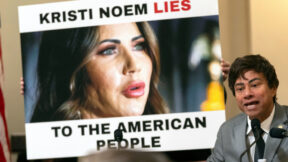
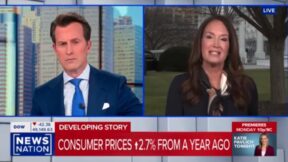
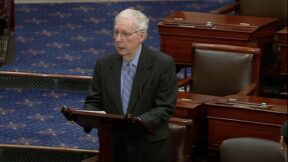

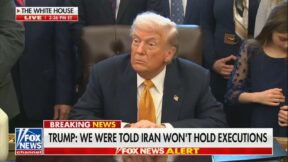
Comments
↓ Scroll down for comments ↓